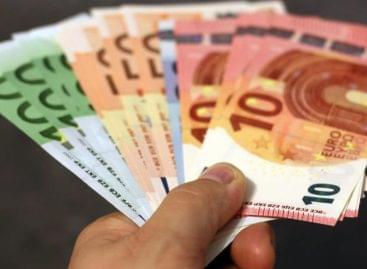MNB: inflation continues to slow down in September
August’s 3.4 percent inflation met the central bank’s expectations, September’s figure is expected to be 3.1 percent, a slight increase is expected in the rest of the year, a rate slightly above 4.0 percent is likely in December – said András Balatoni, Magyar Nemzeti Bank (MNB) the head of its directorate dealing with economic forecasting and analysis at the Thursday press conference presenting the September Inflation Report.

The MNB improved its inflation forecast for this year to 3.5-3.9 percent, from the range of 3.0-4.5 percent expected in June.
The background of the continuing disinflation in the first quarter of 2025 is the lower external cost environment, as well as the more moderate retrospective revaluations next year. In the second half of the future, the core inflation will also start to decrease, thus inflation will return to the central bank’s tolerance band in a sustainable way, he added.
He explained that, according to the MNB’s estimate, the increase in the transaction tax could increase the average annual inflation by 0.1 percentage points this year and 0.2-0.3 percentage points next year. The increase in the fees of banking services available to the general public affects inflation directly, while the increase in banking costs for companies affects inflation indirectly. The direct effects may appear in the inflation of market services from the beginning of 2025 at the earliest, while the indirect effects may already influence the development of inflation in the remainder of 2024.
In the latest report, the MNB lowered the GDP growth forecast from 2.0-3.0 percent to 1.0-1.8 percent for this year.
Mainly, market services can support growth, while the performance of industry may be restrained during the year based on the low order book. Agriculture slows economic growth due to drought. On the consumption side, household consumption and net exports mainly contribute to the increase in GDP, while investments slow down growth. From 2025, the partial replacement of deferred investments can begin, as well as the improvement of external demand processes, so a more balanced growth can be expected. The MNB believes that GDP growth may continue at a rate of 2.7-3.7 percent in 2025 and 3.5-4.5 percent in 2026.
Related news
GKI analysis: Why do Hungarian households live more poorly than anyone else in the EU?
Imagine that the residents of every EU country shop in…
Read more >K&H Analyst Commentary: The forint is on the rise
The forint, the Polish zloty and the Czech koruna are…
Read more >Inflation in Italy accelerated to 1.7 percent in June
In Italy, consumer prices rose by 1.7 percent year-on-year in…
Read more >Related news
GKI analysis: Why do Hungarian households live more poorly than anyone else in the EU?
Imagine that the residents of every EU country shop in…
Read more >KSH: industrial producer prices decreased by 0.7 percent in May 2025 compared to the previous month, and increased by an average of 6.9 percent compared to a year earlier
In May 2025, industrial producer prices were 6.9 percent higher…
Read more >Consumption drives the economy
According to the latest forecast by the Balance Institute, the…
Read more >





